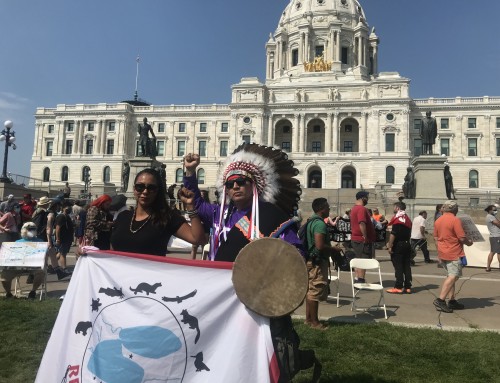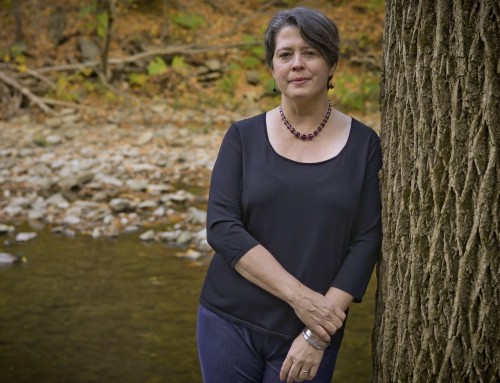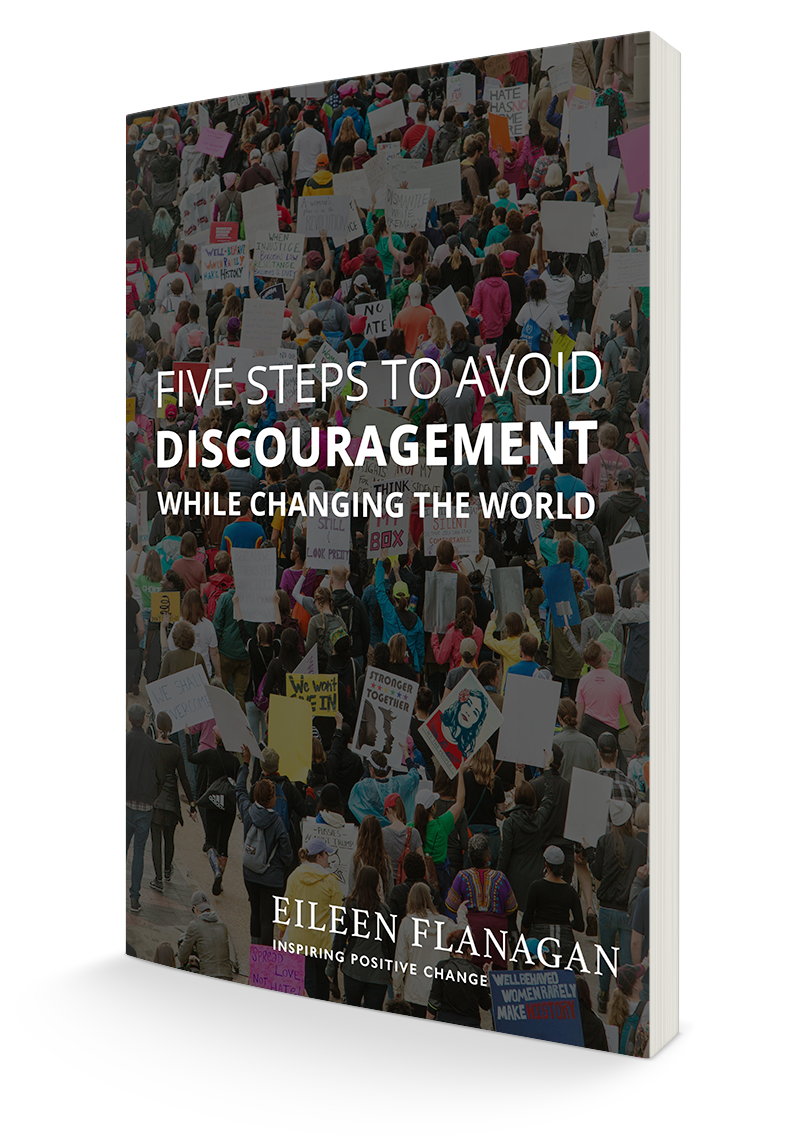Most often on this blog, I say what I think, and sometimes people post comments. But this week I am hoping to start an actual conversation, with differences of opinion and everything. Here are my queries: When are religious metaphors using light and dark appropriate? When are they racist? Should Quakers be talking about this?
These questions were sparked by the workshop I attended at Pendle Hill last weekend, “White People Working to End Racism.” Although religious imagery was not discussed in our sessions, it came up Saturday morning after meeting for worship when a white visitor shared some thoughts that began, “It is better to light a candle than to curse the darkness.” I was totally on board with that metaphor until he went on to quote George Fox’s description of “an ocean of Light and an ocean of darkness.” At that point I squirmed a little because it seemed that dark represented evil, which was not necessarily true in the first reference. Later a member of my workshop stood up and made a statement against the use of light and dark to represent good and evil because of the ways this association has historically been used against people with dark skin. It made me reflect on my own use of light as a religious metaphor and wonder about its limits.
I should explain for my non-Quaker readers that Friends frequently use the phrase “hold in the Light” for a kind of open ended prayer. (i.e. We were asked to hold Warren and his family in the Light when he had a heart attack a few weeks ago.) We also refer to the Divine within us as the “Inner Light.” To say that all references to light and dark should be banned from our vocabulary (as some people do) would require a pretty major shift in Quaker vocabulary. Certainly in my own meeting (congregation to non-Quakers) we ask every week to hold various people “in the Light.” I had already stopped using this phrase myself, saying “hold in prayer” when it was my turn to solicit those requests, but I’ve never challenged anyone else’s use of it, at least until now.
Part of the problem, it seems to me, is that there are situations where light and dark are appropriate metaphors. If you’ve ever lived without electricity, the phrase, “It’s always darkest before the dawn” will have special meaning. So will the bit about lighting a candle. In those cases, however, dark doesn’t signify evil or badness, just a time when we can’t see. In the spiritual life, there are certainly times when we can see more clearly than others. The Gospels are full of references to sight, and light is just something that helps us to see. The phrase “dark night of the soul” doesn’t refer to evil but to a time when we are waiting for a metaphorical dawn. It’s important to remember that night and day are both good and natural; it’s just that day is easier to get around in.
The references to light and dark as metaphors for good and evil feel very different to me, especially since they are so ubiquitous in our culture. For example, I finally allowed the kids to see The Lord of the Rings trilogy (provided we fast forward through the interminable battles), where dark skinned (evil) orks fight light skinned humans and even lighter (better) elves. There are so many references to “darkness gathering” throughout the movie that I came to the conclusion that The Lord of the Rings, Star Wars, and Harry Potter are all essentially the same story (Don’t get me started on all the correlations). Even my ten-year-old asked afterwards, “Why do all the good guys have blue eyes?” which was at least a good conversation starter. It’s not hard to see how a lifetime of such images could subtly influence the way we see and treat people in real life.
I’m not quite sure where “holding in the Light” fits in this division I’ve constructed. Is “the Light” God, or just a gift from God that helps us to see? Perhaps more importantly, is this really where I want to begin a conversation in my meeting about race? On the one hand, it seems important to be conscious of the language we use. On the other, it could feel trivial against the bigger picture of white privilege.
So what do you all think? Is this an issue other people think about? I look forward to hearing from you.







I think you raise important questions and complex ones as well. I know there are times when I am so clear that use of darkness as imagery to explain evil, feels very uncomfortable and offensive; I squirm in my seat and wonder why insult is being added to injury among any person of color in the room. It just feels so intuitively wrong and damaging. Its hard to categorize when this occurs and I will definitely start to catalog my experiences more intently. There are other times, however, when the terms light and dark do not feel racially charged. For me (a white woman) the term “hold in the light” is one of those examples. I love the idea of holding a person in the light–any person. The term does not seem to discrimiate what person can or cannot be held in the light. The light implies and opportunity to shine attention and love on a person–on their strengths,on their goodness on their whole being. As a person for whom “prayer” has negative and evangelical implications, I would be sorry to see it become a replacement for a term I have become very appreciative of…. holding in the light.
Thanks for the thoughtful comment. Two other Friends sent similar thoughts, only they sent them via e-mail directly to me. I hope others will feel free to post here so everyone can hear what you have to say.
dear Eileen,
Thank-you very much for the invitaiton to share my thinking on this topic. In brief form my thinking is as follows.
In Genesis on the 1st day G-d created “light” from “darkness” by breathing over its watery surface. She/he separated them (into duality) calling one day and the other night “light and darkness, G-d saw it was good” (Gen 1:18). However (and I think this is important) it wasn’t until day 4 that he/she created the sun, moon and stars. So both light and dark are described as good. Plus what was the 1st light if there wasn’t any source until day 4?
I think it is talking about something radically different. From this as well as my personal feelings, darkness is a good thing. It is the primordial ooze from which all creation and all kinds of light came, its allows for sleep, the time of rest and repair; renewal and healing. It is a womb environment, the soil in which with moisture seeds are able to germinate; both physical as well as creative.
For these reasons as well as the cultural context of “white” hats/”black” hats etc. I try and avoid metaphors that use “dark” as bad but not so troubled by using the term “light”. So with phases like “Its better to light a candle then curse the darkness” I rephrase to “Its better to light a candle then curse an inability to see”. (I think it carries stronger meaning anyway). Further, in the ocean of Light I would contrast it with an ocean of despair which I believe was the intent and is clearer. Unenlightened is also for me an acceptable term. It gets to that meaning beyond the physical and keeps it possible to honor and recognizes the dark as the progenitor not as the opposite.
However, having said this I do know that my understanding is imperfect.
thanks again for this opportunity,
And thank-you so much for being such a wonderful presence in the workshop! It means a lot to me,
with love,
your
Rachel
When one spends alot of time in the light, one’s skin tends to turn dark. I’m looking forward to it this summer.
My take on the issue is “don’t sweat the small stuff.” I just saw Caroline or Change at the Arden, and it raised my consciousness on the bourgeois campaign of ending racism among Euro-Americans. The crux of the musical’s drama was the conflict between a young white boy’s ignorance and on old black lady’s pain. The boy had the potential to learn and grow out of his ignorance. Pain and anger are much harder to overcome, and they require immense community support.
My generation instinctively avoids the type of language you are questioning. Racism will always be with us as long as melanoma strikes light-skinned people worse than everyone else. The most we can ask is to be savvy to our racism, and your question proves that we have achieved that consciousness. Senator Obama spoke in Selma about the tasks ahead: the river has been crossed, now we need to settle and heal.
As a white woman married to a dark skinned black man and mother to bi-racial children, I think it does a disservice to black people to read too much into the whole “light vs. darkness” religious terminology. In most religious contexts the light and darkness refer not to colors, but to illumination or the absence of illumination. The difference between the two is both a spiritual and a physical reality for all human beings, regardless of skin color, and is thus reflected in some way in every religion that I am aware of. The great monotheistic religions of the West may have a more negative view of darkness than some other religions (of both dark and light skinned people), but as far as I can tell this is not based on differences in human skin color.
I do think we would do well to question the Jeudeo-Christian association of darkness with evil, not because of racial sensitivities, but because it may close us off to some very real spiritual benefits of darkness. I think some pagan religions have done better with the balance between light and darkness than the monotheistic religions have done.
I think what confuses this issue today is that our culture has grafted relatively modern issues of skin color onto the much older spiritual notion of darkness and light. What happens in more modern culture — using light skin color to mean good/beautiful or white and black colored clothing to tell the good guys from the bad — is more insidious and worth resisting. However, I think to give up speaking of spiritual Light (illumination) and Darkness (absence of illumination) would be to throw the baby out with the bath water. We can and should do our best to separate the strands of racism in our culture from the strands of spiritual wisdom which are the rich heritage of thousands of years of human experience. It should go without saying that black folks are just as capable — if not more so — of appreciating the difference as white folks.
Stephanie
Thanks all for your thoughts. I sum up what I learned from this conversation at the end of my next post, “Hope.”
[…] Light and Dark (2007) […]
[…] Light and Dark (2007) […]
You’ve done me the greatest service. As a black woman – It has irked me for years and made me feel evil. To the woman with mixed heritage children – They WILL notice. They WON’T tell you.
Thank you for this conversation! I searched on “is a discussion of light and dark racist” for a poem I’m writing, and I found your post – such a miracle! I love the distinction between darkness as an absence of light and dark color as a sign of evil. It really helped! Blessings to you and your commenters.